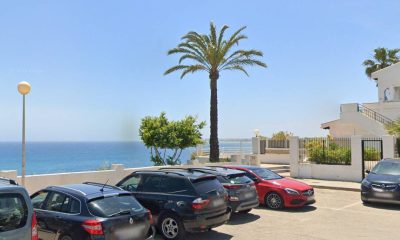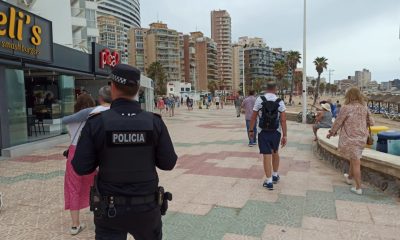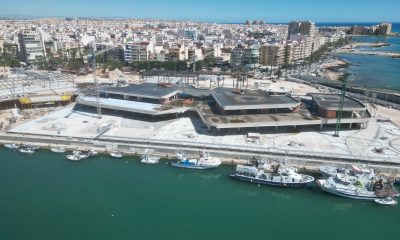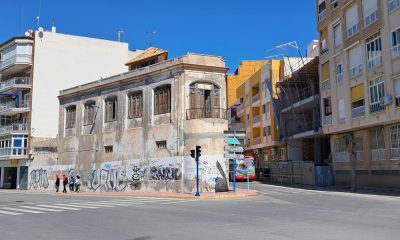Costa Blanca
Vets protest about the animal drug control regulations

The World Health Organisation estimates that animals are the source of 60% of infectious diseases that impact humans. Veterinarians have taken to the streets in concern that this number may rise as a result of the new state legislation that restrict their ability to prescribe antibiotics. In addition to shutting down the majority of the 331 veterinary clinics in the province for two hours, while some remained on call, the group organised its first protest against the new drug laws in Alicante.
They used this time to demonstrate outside the Government Subdelegation and make their concerns heard. A manifesto was read, urging Luis Planas, the Minister of Agriculture, Fisheries, and Food, to change his stance. Veterinarians and pet owners were among the more than 300 attendees.
The prevalence of leishmaniasis in Alicante is three times higher than the national average, which worries veterinarians in particular. They worry that if they don’t handle the animals properly, this zoonosis will become out of control. This human-transmittable illness is typified by sporadic fever episodes, weight loss, concurrent splenic and liver enlargement, and anaemia. In almost 90% of cases, it can be fatal if treatment is not received.
There is one dog for every four people living in Alicante
The province has a substantial pet population, with one dog for every four residents, which contributes significantly to the spread of zoonosis, according to Gonzalo Moreno del Val, head of the Alicante College of Veterinarians. Furthermore, because mosquitoes are the vector of transmission, anyone can contract leishmania, the protozoan that causes this ailment, whether or not they own a pet.
Professionals, however, are upset that the new state law on veterinary medications, which went into effect in January, restricts their prescription in these situations to allopurinol, the medication that is generally agreed to be the most suitable for treating this illness in dogs. Up until the new rule, they used the human active ingredient because there isn’t a veterinary medication in Spain that contains it.
A major issue
This possibility was eliminated by state regulations that went into force at the start of the year. “This animal disease could spread and impact more people since we are unable to adequately treat it. In addition to being a major issue for us professionals and placing us in an awkward position, it has an impact on society as a whole. Moreno del Val adds, “Spain’s uniqueness is also quite extravagant, as this treatment is used in other countries.” Production farms as well as small animal veterinarians are impacted by this ban.
“When it comes to something as crucial as prescription, we cannot treat animals based solely on our clinical judgement or scientific data. First and first, the health and well-being of animals will be impacted, followed by people, if one of our primary duties as healthcare professionals—prescription, just like for doctors—cannot be utilised to cure illnesses. Since many of these illnesses are contagious, they affect public health and are a concern for the entire community.
“My clinical judgement is not criminalised”
Thus, among the slogans that veterinarians in the Plaza de la Montañeta have displayed on their banners are “The health of animals is the health of people,” “For one health,” “We are health professionals, only our clinical judgement is valid,” “Royal Decree 666/2023 prevents us from adequately treating millions of animals,” “I am a veterinarian, my professionalism is not questioned, my clinical judgement is not criminalised,” and “Yes to public health, animals are not to be touched.”
Although they believe that the interpretation made in Spain is far more restrictive than in other European countries, the group’s dissatisfaction, which is widespread throughout the nation, stems from a rule that the Ministry of Agriculture, Fisheries, and Food initially wants to control a public health issue that veterinarians also share, such as antibiotic resistance.
These experts also confirm that pets barely account for 0.19% of the total amount of antibiotics ingested by people and animals in our nation. “Is this percentage really that bad that it puts the veterinary industry under so much strain? The group notes, “It’s odd that we have this control system for animals, but it doesn’t exist for humans; it doesn’t make sense.” According to the vets, the Ministry of Agriculture staff who created the norm lack clinical judgement “and don’t listen to us either.”
A platform for sharing all recipes
This new rule also mandates that veterinarians use an internal electronic platform called PresVet to report every prescription to the Ministry. Additionally, they are no longer permitted to prescribe drugs; instead, owners of dogs and cats must buy them from pharmacies, which frequently run out of stock because of drug shortages. Veterinarians must conduct cultures to determine the best drug, which may be life-threatening for the animal, delaying treatment.
Jordi Fontaner, an Elche veterinarian, observes a system of operation that raises the expense of therapy. “The drugstore would sell you the entire box of a medication, but we used to hand out ten tablets. The law states as much. Both the treatment and the product get more costly. To switch from one antibiotic to another, they require us to run antibiograms (cultures), which raises the expense because each one costs about 50 or 60 euros.
“It’s not an economic issue”
“It’s no longer a financial issue,” the expert adds, adding that the procedure takes longer. Our goal is to be able to care people the way we want to, not to generate money. Because an antibiogram can take up to seven days to produce benefits, treatments shouldn’t be prolonged. Immediate prescriptions are forbidden by the decree.
“We are losing our professional judgement. They forbid us from working or prescribing. We truly know what to employ in each situation, but the law restricts us, particularly when it comes to antibiotics.” Pet owners must now visit pharmacies to obtain their prescription drugs. “They don’t have that medication; they can’t acquire the pills, so they have to go to three, four, or five. In the end, we issue four or five prescriptions for each treatment since they must keep returning, whereas previously we handled it ourselves.”
Fontaner gives the example of an 80-year-old customer who visited multiple pharmacies in search of medication for her pet. “The woman actually informed me that my cat should die at the end. Since they won’t let us work, we’ll ultimately have to get around the law that is being imposed on us.”
With the new rules, “we invest a lot more time in looking for which antibiotics we can get, because we are limited by the law,” according to Tania García, a veterinarian from l’Alfàs del Pi. Perhaps writing a prescription takes twice as long as the 20-minute consultation that was originally scheduled. After that, it must be uploaded to the PresVet system. Or it takes nine days to receive it and the pharmacy doesn’t have it. Customers accuse us, therefore we have to explain, which ultimately takes a lot of time.
Reducing the 21% VAT rate on veterinary consultations as a medical profession is another demand.
Discover more from Costa Blanca Daily
Subscribe to get the latest posts sent to your email.
Costa Blanca
Walkway from Aguamarina to La Caleta in Cabo Roig will reopen, again
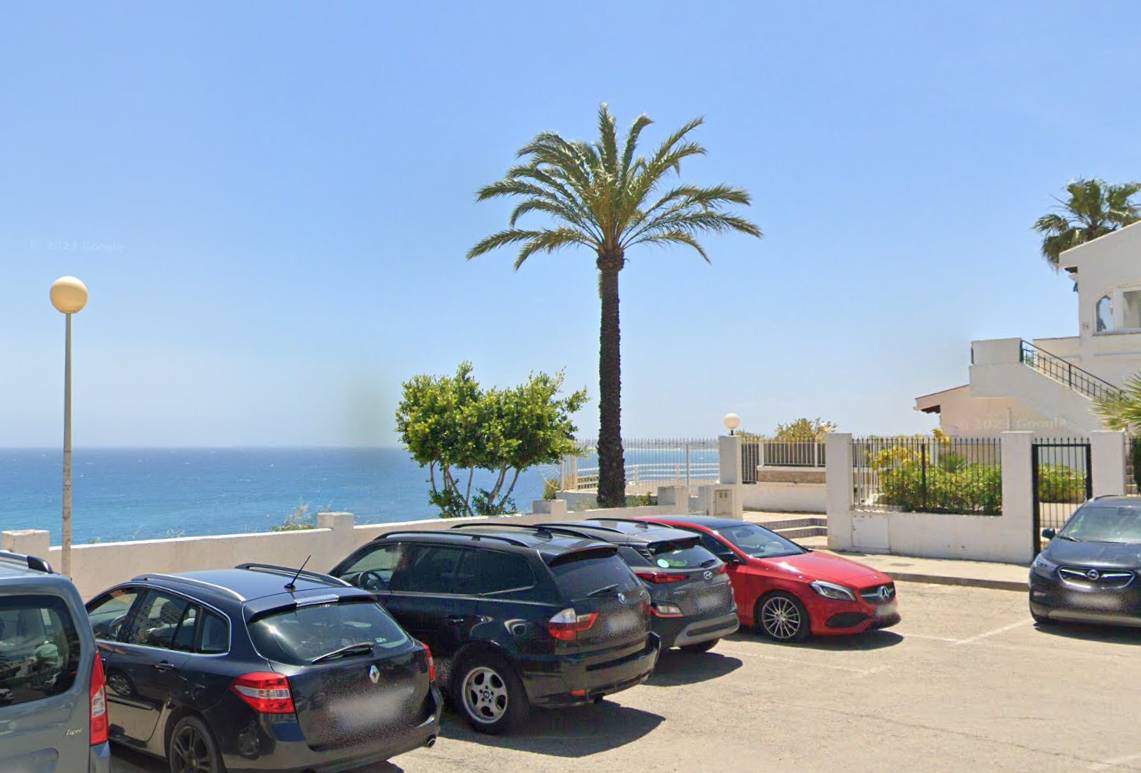
According to the notification from the Provincial Expropriation Jury to the Orihuela City Council following its approval of the court’s appraisal report, the municipal coffers will incur a cost of 26,180 euros for the expropriation of the land to reopen the pedestrian crossing connecting Aguamarina with La Caleta in Cabo Roig, near the Bellavista development.
The City Council has now requested that the Treasury deposit the specified amount in the receptacle and proceed with the preoccupation of reopening the promenade this summer.
Unable to reach an agreement, the local government and the proprietors brought the process before the provincial jury. Almost 17 times the municipal technicians’ calculation (€69,113), the proprietors presented a valuation of €1.2 million for their 227-square-metre cliffside plots in January of last year.
Nevertheless, this proposition was a decrease from the 3 million euros that they had initially requested. The 52 residents of the residential complex have established a price of approximately 170,000 euros for the 142 square meters of land that is to be expropriated, which is a decrease from the previous price of 2 million euros. Conversely, Cabo Roig SA has requested 987,000 euros (previously 1 million euros) for 85 square meters of hotel use. The City Council’s initial assessment was 44,000 euros.
The jury ultimately found that the City Council had to pay just over €26,000. The 2024 budget allocated €600,000 for the expropriation of the land and the necessary works to reinstate an idyllic pedestrian promenade along the Orihuela coastline. This should be kept in mind. This promenade has been accessible to the public for many years, but it has been closed since December 2021. The City Council closed it in accordance with a court judgement, which necessitated a two-kilometre diversion for residents and numerous visitors to circumvent a section that was only 60 metres in length.
The residential development was authorised prior to the Coastal Law and the General Urban Development Plan (PGOU) of 1990, which mandated that the initial line be used for public purposes. Nevertheless, the City Council refrained from expropriating this section, which ensured the promenade’s continuity along the entire littoral. In 2013, the residents of the development constructed a wall to seal off the path that runs along the precipice and is adjacent to the gardens of their residences.
In 2013, the local government, at the request of the socialist Antonio Zapata, the councillor for urban planning at the time, initiated the process of restoring urban planning legality against the development. The process involved the installation of a barrier and a wall, which impeded traffic on the section.
In March 2015, City Hall employees employed sledgehammers to breach the gate and wall, thereby allowing the public access to the trail, with the support of the Supreme Court of Justice (TSJ). In 2016, the Elche Administrative Court ruled in favour of the residents of the development, annulling the rulings and directing City Hall to restore the cliff walkway at the Bellavista I residential complex, which was never considered public property.
Although the local government has been appealing its enforcement, the ruling became final when the City Council, which was then governed by the People’s Party (PP), did not appeal. The Provincial Coastal Service reported in May 2017 that a right of way impacted the land in Aguamarina. Consequently, the 52 residents of the residential complex were unable to close the passageway and were required to maintain it undisturbed.
The City Council filed an appeal against the October 4th, 2018, order, which ordered the fencing and restitution of the demolished wall. The TSJ overturned the appeal in a November 2020 ruling, stating that the wall was legally constructed by the residents prior to the implementation of the current Coastal Law, which is the foundation of the Provincial Coastal Service’s right of way discussion. The City Council assumed the report and was subsequently obligated to execute the 2016 ruling, which mandates the reconstruction of the demolished perimeter fence and annuls the 2013 agreement of the Governing Board and the 2015 demolition decree.
Therefore, in December 2021, it was once again closed to adhere to the ruling, which mandated that the City Council restore it to its original condition.
Discover more from Costa Blanca Daily
Subscribe to get the latest posts sent to your email.
Costa Blanca
Crackdown on illegal sales in Calpe
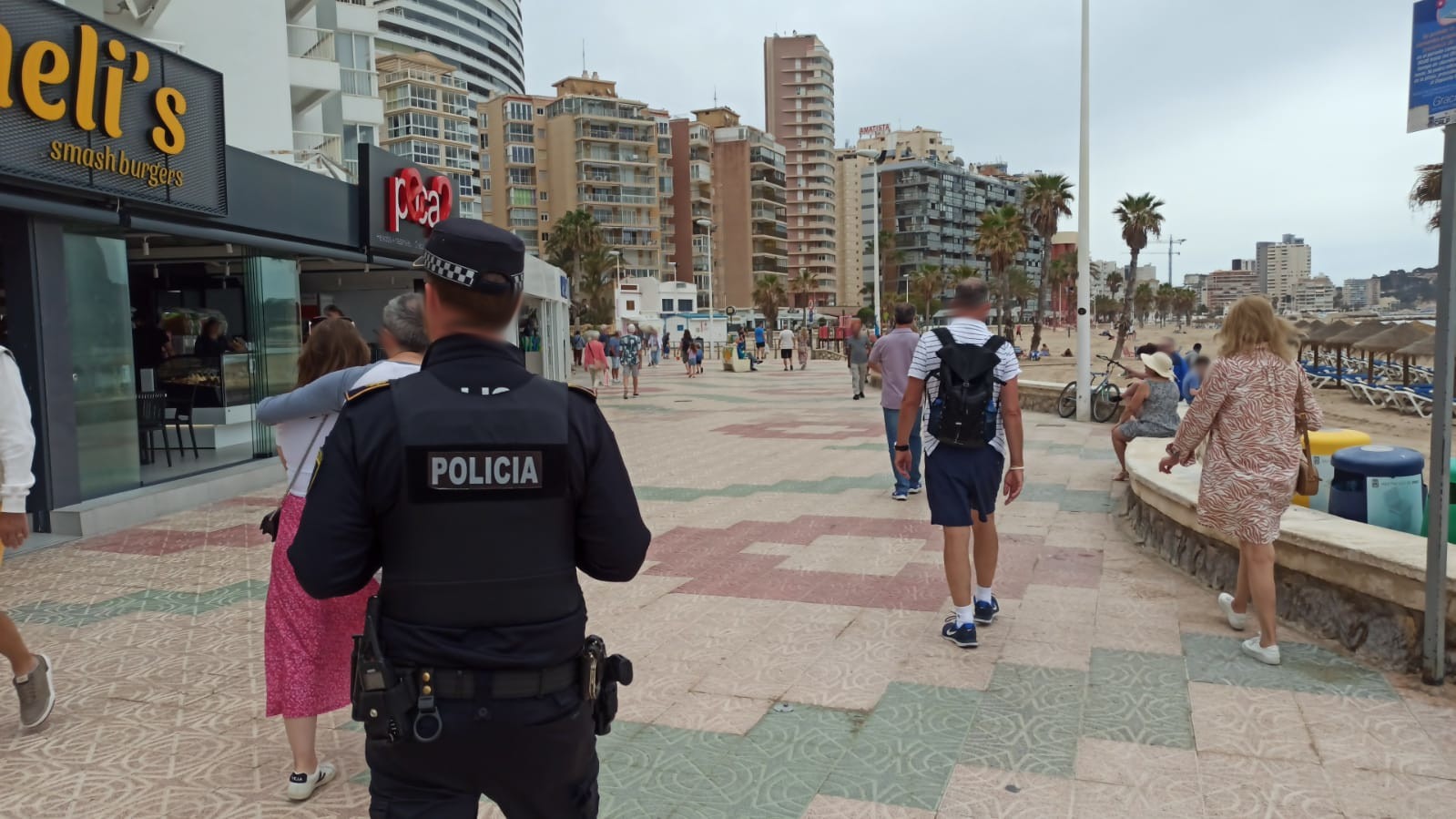
As part of a campaign against street vending that will be further bolstered in the spring and summer of 2025, the Guardia Civil and Local Police have deployed over 25 officers and a drone to the beaches of Levante and Poniente.
A police operation was conducted a few days ago to combat the illicit sale and counterfeiting of products by plainclothes and uniformed officers from the Guardia Civil and the Calpe Local Police. The prevention and deterrent campaign against illicit street vending will persist throughout the spring and summer of 2025, and this action is a component of it.
The Guardia Civil officers from the Main Post and the specialised unit PAFIF (Tax and Border Patrol), which monitors borders and controls taxation in our country, as well as the UTAI and USC CALP units of the Calpe Local Police, were involved in the police operation, which was aided by a drone from the UMAC (Calpe Local Police Aerial Means Unit). This police operation, which was conducted on the Levante and Poniente beaches of Calpe, involved over 25 officers from both forces.
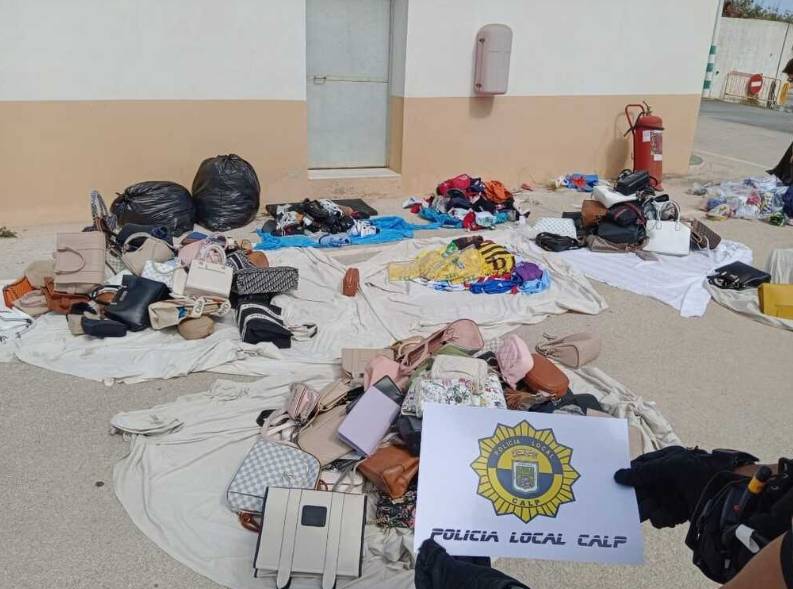
In the course of the operation, 180 leather products, 212 T-shirts, 38 swimsuits, 12 caps and 291 pairs of trainers were confiscated, in addition to five vehicles that were purportedly used as warehouses. The prospective market value of all counterfeit items, which includes the value of the immobilised vehicles and the seized materials, is €15,000. The competent authorities were also informed of the sellers who were identified.
The Councillor for Citizen Security of the Calp City Council, Guillermo Sendra Guardiola, conveyed his satisfaction with the positive relationship and spirit of collaboration and cooperation between the Guardia Civil and the Local Police. “The councillor underscored that the fact that both forces are collaborating, despite their differences in resources and efforts, results in heightened safety for Calpe residents and visitors.”
The local government’s dedication to law enforcement is complemented by its efforts to increase community awareness of the risks and repercussions of supporting this unlawful trade, as the municipal ordinance prohibits both the street sale and purchase of these products.
Discover more from Costa Blanca Daily
Subscribe to get the latest posts sent to your email.
Costa Blanca
Another man arrested for his alleged involvement in the death of a man during a fight in Alicante

Police sources say that the National Police have arrested a second individual in Alicante yesterday, Thursday April 17th, for their alleged involvement in the death of a man who was stabbed during a dispute near the General Hospital last Friday afternoon, April 11th.
Initially, authorities apprehended a male on suspicion of involvement in this incident, which resulted in a fatality and a knife wound that required hospitalisation. The person arrested is believed to be only 14 years old. The Violent Crime Group of the Alicante National Police Brigade is currently conducting an investigation, and no additional information has been disclosed regarding the identities of those apprehended.
Last Friday, at approximately 6:00 p.m., officers responded to a call and proceeded to an area near Alicante General Hospital. When they arrived, they found two individuals who had sustained injuries from a weapon. One of them passed away, while the other needed treatment in the ICU.
Discover more from Costa Blanca Daily
Subscribe to get the latest posts sent to your email.
-
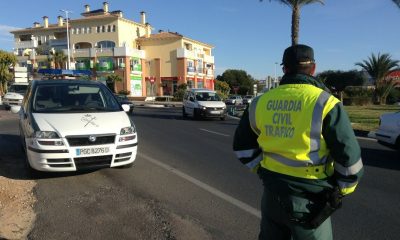
 Costa Blanca2 weeks ago
Costa Blanca2 weeks agoThis week the DGT will issue over 64,000 speeding tickets
-

 Costa Blanca2 weeks ago
Costa Blanca2 weeks agoSix arrested for the use of AI to defraud over 19 million euros
-
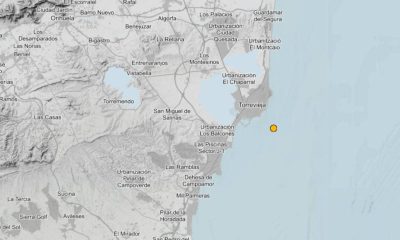
 Costa Blanca5 days ago
Costa Blanca5 days agoTorrevieja records a 2.8 magnitude earthquake
-

 Costa Blanca2 weeks ago
Costa Blanca2 weeks agoFire in Benidorm sees two being treated for smoke inhalation
-

 Costa Blanca1 week ago
Costa Blanca1 week agoSpanish family killed in helicopter crash in New York
-

 Costa Blanca2 weeks ago
Costa Blanca2 weeks agoWhy aren’t salaries in Spain rising while everything else is?
-

 Costa Blanca2 weeks ago
Costa Blanca2 weeks agoBeware if you receive an orange envelope in your postbox
-

 Costa Blanca2 weeks ago
Costa Blanca2 weeks agoPolice are investigating a shooting in Alicante

